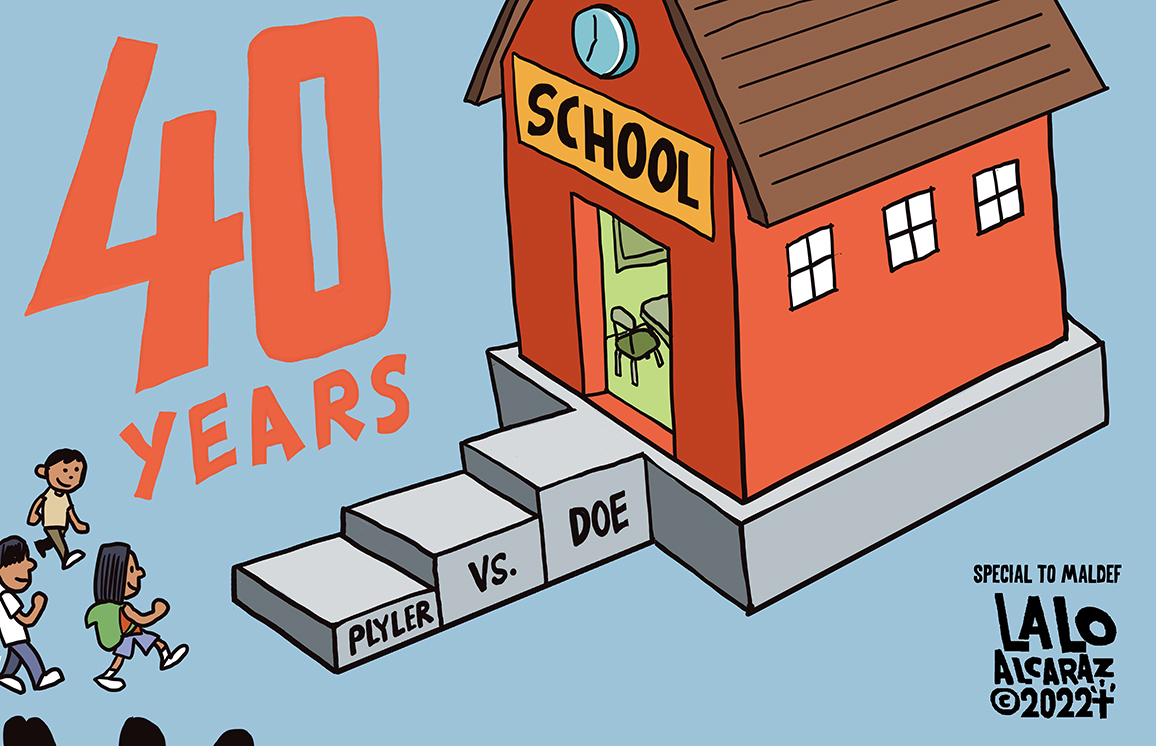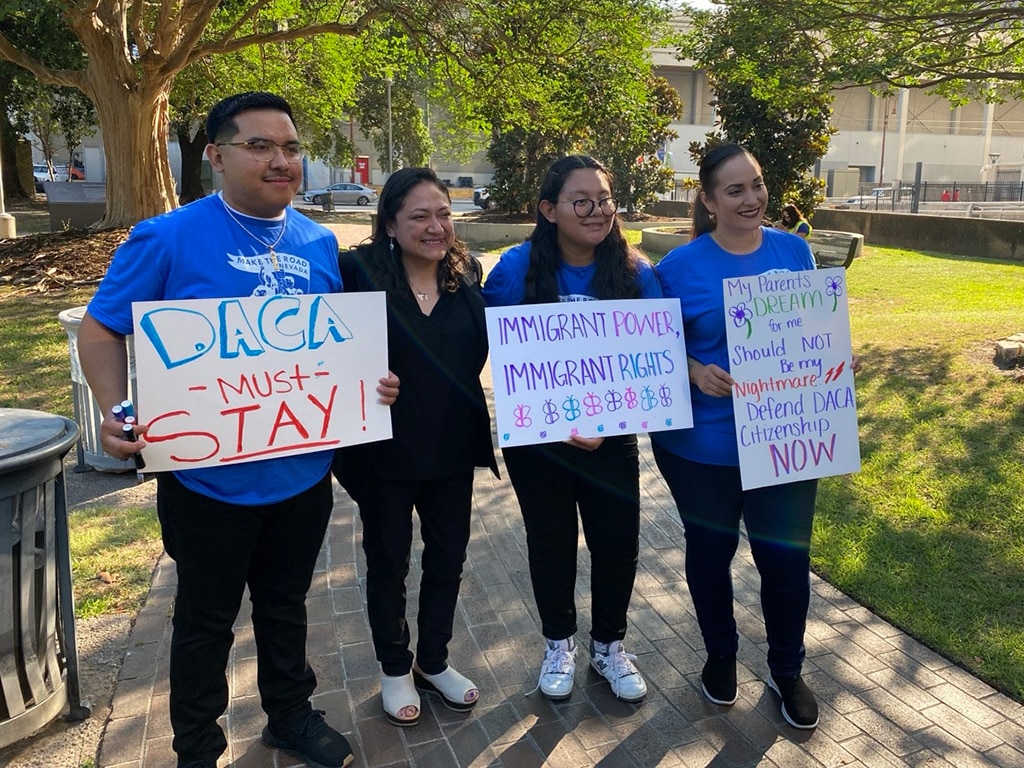From Plyler to DACA
Laying the Foundations for Greater Educational Equity and Protections for Undocumented Students
PLYLER TO DACA
They did not want those children in their schools.
And to keep undocumented students out, a school district in Texas decided to hit their families with exorbitant tuition, fees way beyond their ability to pay.
What kind of future could children raised without schooling expect? Not much.
But those families had an ally and advocate.
MALDEF sued Texas and the school district on behalf of the families and won a landmark 5-4 U.S. Supreme Court decision on June 15, 1982 guaranteeing the right of every child to attend K-12 public school regardless of immigration status.
That decision, known as Plyler v. Doe, stands today as one of the Court’s most consequential rulings, making a place for generations of immigrant children in public school classrooms.
Writing for the majority, Justice William A. Brennan Jr. noted that denying a public education to some “raises the specter of a permanent caste of undocumented resident aliens, encouraged by some to remain here as a source of cheap labor, but nevertheless denied the benefits that our society makes available to citizens and lawful residents. The existence of such an underclass presents most difficult problems for a Nation that prides itself on adherence to principles of equality under law.”
Children whose parents have brought them to this country without documentation continue to benefit today from the milestone Plyler decision, whose guarantee of public education contributes to making them eligible for Deferred Action for Childhood Arrivals, or DACA.
The Obama administration established DACA on June 15, 2012, providing temporary protection against deportation and issuing work permits for hundreds of thousands of young undocumented immigrants.
If they met certain requirements, such as being enrolled in school or in the military, immigrants who came to the U.S. as children could pursue their dreams after high school as a result of DACA.
Thanks to DACA, hundreds of thousands of immigrants have earned college degrees, built careers and businesses, and helped this country survive a global pandemic.
Just as Plyler kept the schoolhouse doors open to undocumented children, DACA has allowed them to build a future, at least for a time, in a country that is the only home many of them they have ever known.
Today, we continue to work to ensure school districts that ignore Plyler are held to the law. And we are at the forefront of challenging Fortune 500 companies and financial firms that discriminate against qualified DACA recipients by denying them jobs or credit services based solely on their immigration status.
Forty-two years after Plyler, MALDEF remains committed to protecting the civil rights of all Latinos because in so doing we are helping to secure a better future for our nation.
Multimedia
Thomas A. Saenz, MALDEF President and General Counsel, on the 42nd anniversary of Plyler v Doe
Thomas A. Saenz, MALDEF President and General Counsel, on the 12th anniversary of DACA
gaby pacheco
Plyler v. Doe enabled generations of immigrant children to access a free K-12 public school education. One of those kids was Maria Gabriela “Gaby” Pacheco, president and CEO of the The Dream.US. In 2010, Pacheco, a former DACA recipient, and other young immigrant activists walked from Miami to Washington, D.C., to advocate for a pathway to citizenship. Listen to her talk about what the ruling.

